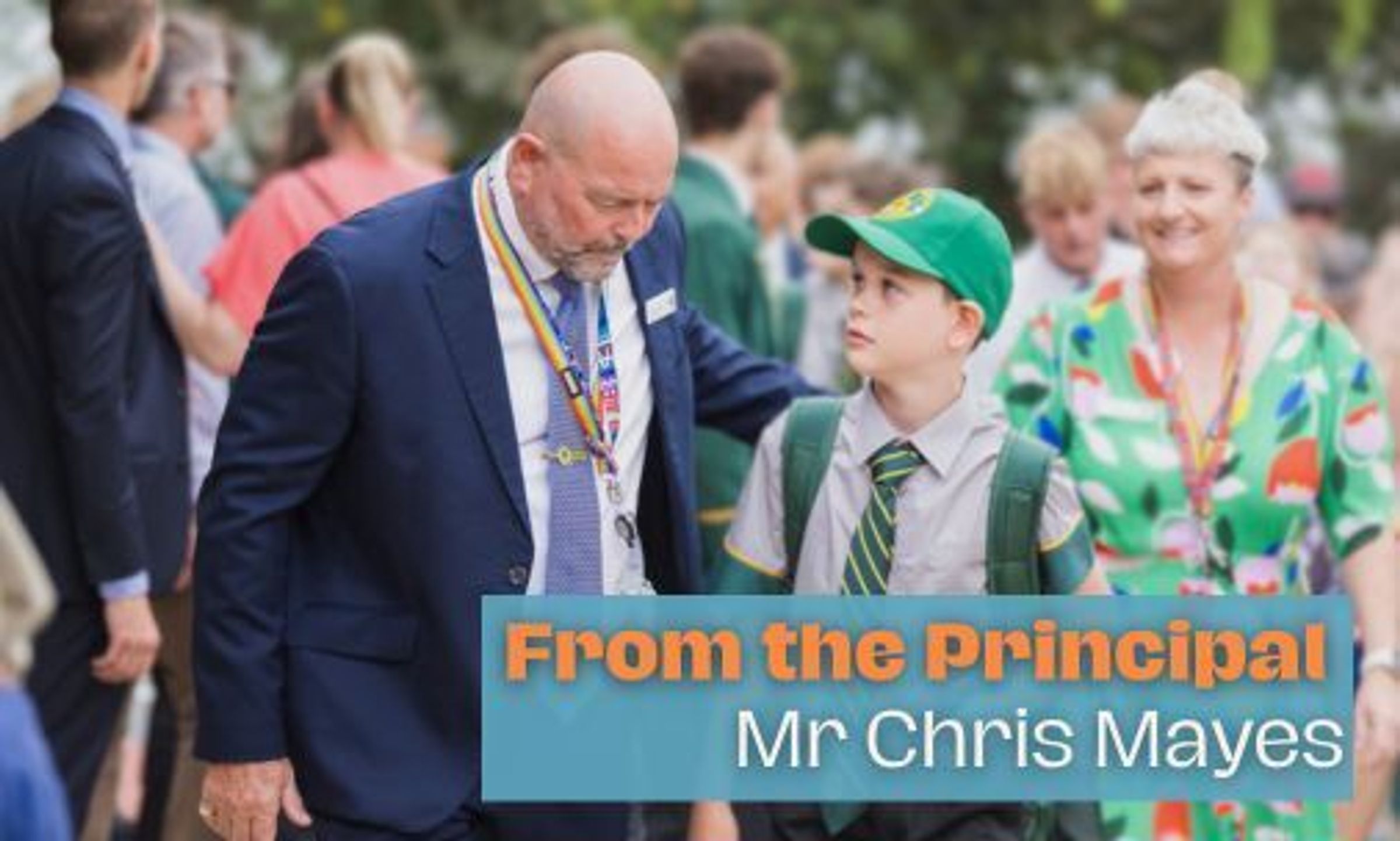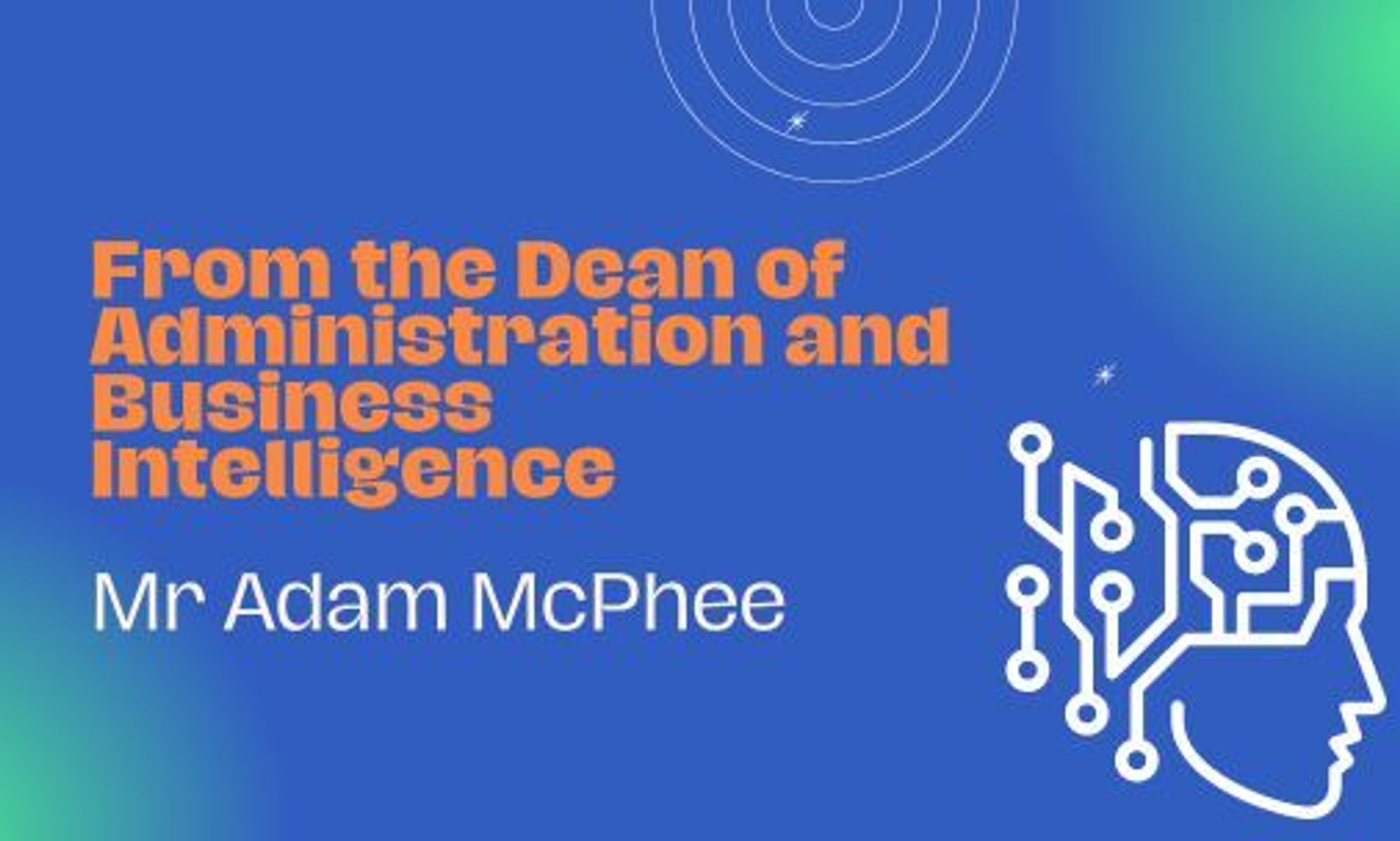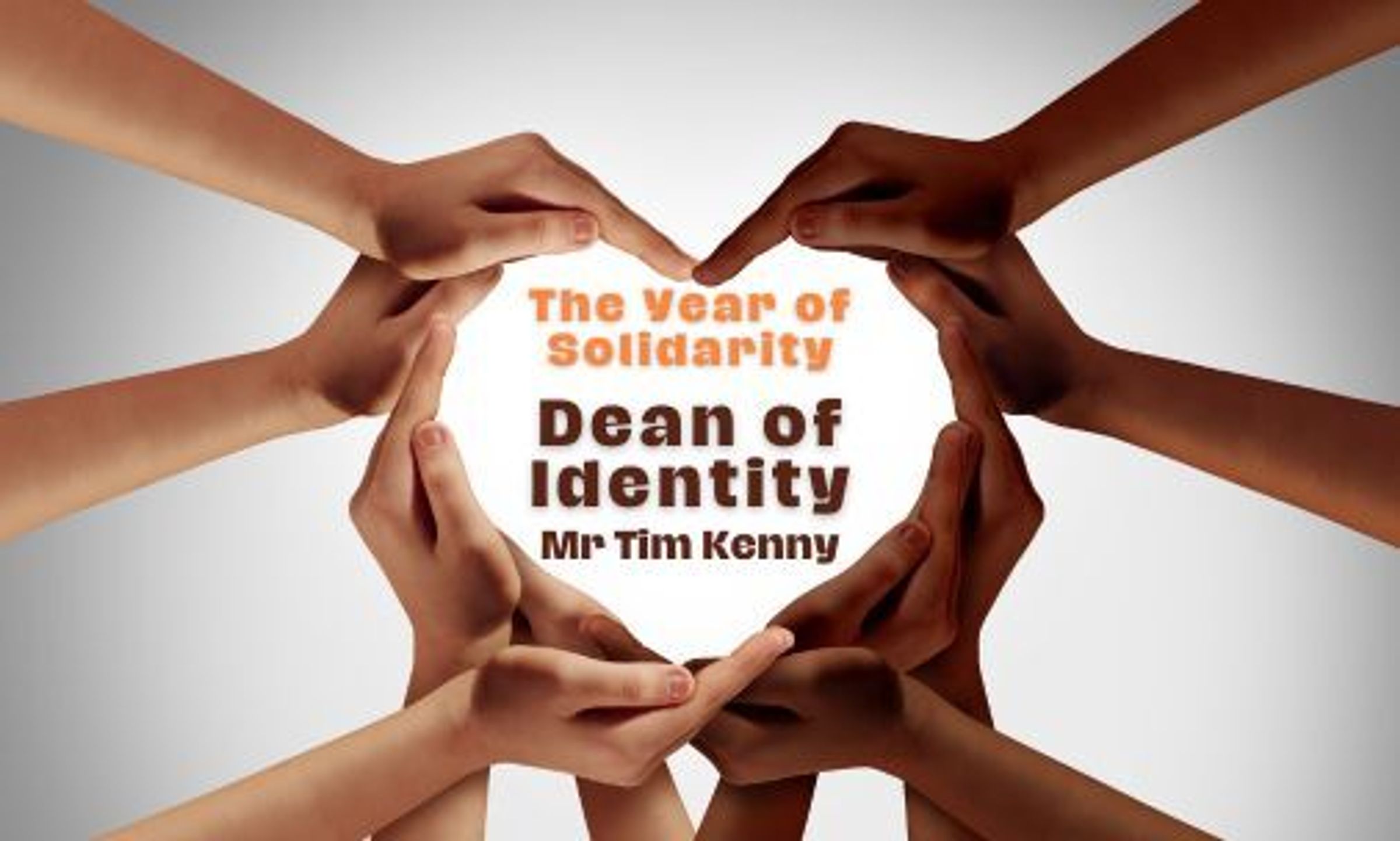This Week
From the Principal: Term 2 - Week 5

This week, we embarked on a journey of celebration, reflection, and unity. Pride Week is a testament to our commitment to forming a community that is founded on diversity, inclusivity, and understanding. We believe that this should be marked in our calendar as a time to reflect and join together, to appreciate and understand our shared humanity (differences), and to celebrate that these differences should unite us rather than divide us. This week we say to one another that we have Pride in you; Pride in me and Pride in us and we show this by being an ally to all.
An ally actively supports and advocates for the marginalized by their viewpoint. Being marginalized is not the same as being in a minority. There is a significant difference between the two and can often be distorted in believing they have one and the same meaning. When we speak of the marginalized, we speak of those who deliberately face injustice because of their beliefs, cultures, or attributes. At Monday’s assembly we spoke of being an ally who did more than simply sit on the fence and be neutral to issues of justice. An ally gives active support to dismantle barriers, challenge stereotypes, and uplift those who feel their voices have been silenced or who feel unsafe or too disempowered to speak out for themselves. Being an ally requires a commitment to really listening to and learning from others so that our own views are informed by education rather than judgement or urban myth. Allys walk towards a problem of justice so they can be a part of a solution rather than a contributor to the problem. During this week we speak of diversity being strength and showing good and decent humanity, no matter the differences we each have from another.
During our assembly on Monday, I explained that there are five things that we can do to be a good ally.
- Educate Ourselves: Knowledge is power. Take the time to learn about different identities, experiences, and struggles. Read, listen, and engage in conversations because ignorance perpetuates discrimination; education breaks down those walls.
- Speak Up: When injustice or prejudice happens, do not remain silent. Use your voice to challenge stereotypes, correct misconceptions, and promote understanding. Allies are not passive bystanders but rather active advocates and true upstanders.
- Practice Empathy: Walk in someone else’s shoes. Understand their experiences, fears, and hopes because empathy bridges gaps and fosters compassion.
- Celebrate Differences: Our diversity is our strength. Let us celebrate our unique backgrounds, cultures, genders, and perspectives rather than fear them. When we appreciate our differences, we create a richer, more vibrant community.
- Show support: Pride Week reminds us of the struggles faced by some individuals. Be there for your friends, classmates, or family members who may be navigating their identities by showing them kindness, acceptance, and love.
This year is our Year of Solidarity. It is our hope that our students consider the theme of solidarity as more than just a word. We believe it is about actions and the courage to be, on occasions, countercultural and to do what is right irrespective of all the outside noise that may surround them. It is about standing shoulder to shoulder, supporting one another, and recognising that our collective strength far surpasses our individual abilities. When we embrace solidarity, we can become a formidable team and a force for positive change.
So, this week has been about offering opportunities for the students to pledge to be an ally by standing up for justice, equality, inclusivity, and acceptance. It has been a chance for us to reflect upon and commit to demonstrating real solidarity that transcends prejudice and discrimination. This week has allowed us to create a better community and understand that we all have the power to create a world where everyone feels seen, heard, and valued because we all have pride in you, pride in me and pride in us.
Next Tuesday evening we are hosting "Working in Partnership with Parents” Evenings for parents and carers with students in Years 6,7,8 & 9. Mr Matthew Robertson has organised a series of events that will be relevant, helpful, and supportive of parents in these year levels. We aim to present events that are relevant, age based and informative to adults. I look forward to catching up with families on the night.
Throughout the month of May, many of our students and staff have been walking 5kms along the shoreline starting at 6:00am each Wednesday and Friday. Our students combine with others from St John Fisher College as an awareness of domestic violence and violence against women in Australia. It is a part of the national Darkness to Daylight campaign. They will continue to do this for the rest of the month and culminate the program with a short recognition of the situation and campaign at Back to Shorncliffe Day.
Our co-curricular activities in both Sport and Culture are well underway for this term. At St Patrick’s, it is important to us that we give opportunities for students to achieve success in various ways. These programs are an important part of that endeavour. We have many talented young people within our community.
Our College Open Day will occur on Tuesday 28 May. We have asked many of our students to be a part of this programme because it adds to the experience of those families wishing to see the College in action. It allows our young men to show off their school by using their own skills and talents. During enrolment interviews, I constantly hear of the positive experiences that people have had at our Open Days due to our students’ tours and participation.
As always, I look forward to meeting with people during our events and at school.
Live Jesus in our Hearts!
Chris Mayes
College Principal
Curriculum
From the Dean of Administration and Business Intelligence

As we move past the mid-point of Term Two it is timely for all students to reflect on their goals, the strategies they are using to achieve their very best in the classroom and what they can do to optimise their performance. A man of learning is always looking for opportunities to grow and develop their knowledge and understanding of the content they are learning in class.
Students should have a regular study routine made up of homework, assessment and independent study that spans across the week. Applying Mr Schultz’s Golden Rule will help guide you in terms of the time you need to dedicate to this process.
I have outlined my favourite high yield study strategy below:

This strategy will allow you to build strong retrieval skills. This approach gives you the opportunity to translate new knowledge into your long-term memory making it easier to access when you are in an exam. This means it takes less cognitive energy and allows you to complete more complex tasks. Consider learning to spell or learning your number facts – the more you practice and test yourself the easier they are to remember until they take no energy at all to recall. The same is true of learning someone’s name – the more frequently you see them and use the name, the more easily you are able to retrieve the name from your memory. The same is true of the knowledge you are learning in class.
Academic Mentoring:
The Year 12 cohort are currently in the middle of their Academic Mentor meetings. Students will discuss and review the following:
- ATAR Predictions
- Post-School pathways
- Current levels of achievement compared to goals
- Set individual task goals for IA3 and EA, and
- Discuss study habits and routines.
The Year 11 cohort are still under the guidance of their SET Planner. At the end of Term 2, the Year 11 students will transition to their Academic Mentors. Mentor meetings will take place in Term 3 where students will have an opportunity to meet with their assigned Mentor. This will be an opportunity to discuss their post-school pathway, study habits and goals as they work towards completing Unit 2. Mentor Meetings will be hosted each term across Weeks 4 and 5.
Adam McPhee
Dean of Administration and Business Intelligence
Identity
From the Dean of Identity

“And Mary Treasured All These Things in Her Heart”
Term 2 is always a busy time in the Identity Space –
- we celebrate our Founder Edmund Rice on May 5,
- we have our Darkness to Daylight program through May to raise awareness about Family and Domestic Violence,
- we mark Men of Action - Pride Week and IDAHOBIT (the international Day against homophobia, etc),
- we are about to celebrate Reconciliation Week and hear the voices of our First Nations Peoples and work toward being people of Reconciliation.
All of this alongside the regular activities of school and family life, it can get very hectic and unfortunately it is easy to brush aside these very profound ideas and experiences if we do not learn the art of being reflective.
In the Church, May is associated with Mary the mother of Jesus. It is a time to lean into her maternal care for us and to model our discipleship on her, the first disciple of Jesus. Among the many aspects of Mary’s life that we can claim, one that resonates the most for me is the line “Mary treasured all these things in her heart”, which appears twice in Luke’s Gospel in chapter 2. Mary models a strategy of making space, in order to allow her experiences to become real within her and within her life. She takes the time to contemplate God’s presence with her and this transforms her.
We should learn the art of making space, to contemplate and see what is resonating in our hearts. The big messages of this Term are not simple: they are complex, real-world issues that require some sitting with, in order for them to make sense in our lives. Let us take up Mary’s model of ‘treasuring things in our hearts’, to reflect and see what these experiences are asking of us.
Mr Tim Kenny
Dean of Identity

